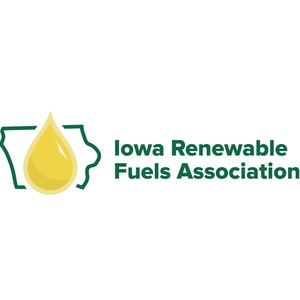IRFA: Biofuels continue to have positive impact on Iowa's economy

February 2, 2021
BY Iowa Renewable Fuels Association
A new study released today finds biofuels continue to have a significant positive impact on Iowa’s economy, but recent market challenges reduced the job and household income impacts of ethanol and biodiesel production in the state.
The study, authored by John Urbanchuk of ABF Economics and commissioned by the Iowa Renewable Fuels Association (IRFA), found the production of ethanol and biodiesel accounts for nearly $4 billion in state GDP, supports 37,000 direct and indirect jobs, and boosts Iowa household income by $1.8 billion. All three metrics are down 20 to 25 percent compared to 2019.
Advertisement
Advertisement
“Biofuels still provide a major boost to Iowa’s economy, but quite frankly, the report is a wake-up call to redouble our efforts at the state level,” said IRFA Executive Director Monte Shaw. “Midwestern states like Iowa must be aggressive to drive local demand for biofuels in a meaningful way, thereby providing a sturdy market foundation, even as we supply the rest of the United States and markets around the world. IRFA will continue to work with Gov. Kim Reynolds and the Iowa Legislature to improve our biofuels policies and programs.”
In 2020 Iowa biodiesel production increased slightly, but the COVID-19 pandemic, trade disputes, and Renewable Fuel Standard exemption abuse led to ethanol production decreasing by half a billion gallons compared to the previous year.
“The renewable fuels industry continues to make a significant contribution to the Iowa economy in terms of job creation, household earnings, and state and local tax revenue,” stated Urbanchuk. “Further, policy and regulatory actions taken by Iowa, and other Midwestern states, to boost the use of biofuels locally will provide a buffer from the uncertainty of federal policy and export demand. By creating a larger and more stable local demand situation, Iowa can greatly enlarge the latent economic benefits of biofuels production represented by the more than 800 million gallons of unutilized ethanol production capacity and 50 million gallons of unutilized biodiesel production capacity. Putting this existing manufacturing infrastructure to work would greatly increase the GDP, household income and job benefits related to Iowa biofuels production.”
Advertisement
Advertisement
Related Stories
Iowa farmers have a new market opportunity for their 2025 soybean crop. Landus is expanding its Clean Fuel Regulation initiative, made possible by recent policy changes expected to increase Canada's demand for liquid biofuel.
Topsoe, a leading global provider of advanced technology and solutions for the energy transition, has been selected as the renewable diesel technology partner for CountryMark’s Mount Vernon, Indiana refinery.
Klobuchar, Moran introduce bipartisan legislation to support biorefineries, renewable chemicals, and biomanufacturing
Sens. Amy Klobuchar, D-Minn., and Jerry Moran, R-Kan., on July 31 announced the introduction of the Ag BIO Act. The legislation aims to update the USDA’s loan guarantee program to better support biorefining projects.
The U.S. exported 35,953.6 metric tons biodiesel and biodiesel blends of B30 or greater, according to data released by the USDA Foreign Agricultural Service on Aug. 5. Biodiesel imports were at 2,148.9 metric tons for the month.
XCF Global leverages Alfa Laval technology to enhance pretreatment capabilities at New Rise Reno facility
XCF Global Inc. on Aug. 5announced it leverages Alfa Laval Inc. pretreatment technology at its New Rise Reno biorefinery, a sustainable aviation fuel (SAF) plant located in Nevada. The pretreatment technology enhances feedstock flexibility at the plant.
Upcoming Events










